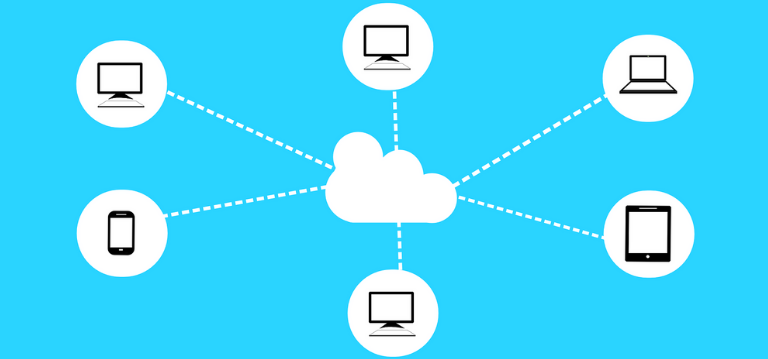Despite the continuous evolution of the cloud and increased adoption, cloud myths still persist. We take a look at the misconceptions around cloud services and offer insight into what you need to know.
The cloud has become a buzzword, but with good reason. Cloud-based software like Microsoft is secure, reliable, scalable, and can be accessed from anywhere via any authorised device. It is also not dependant on any on-premise infrastructure. Yet despite the development and advancement in cloud services that continue to improve, cloud myths still persist. We debunk them here:
Cloud Myth 1: The cloud is unsafe and can be easily hacked
The most common concern when it comes to cloud services is the security of data. Organisations want to know how safe their data is and if they can be hacked.
Let’s starts by noting that not all cloud services are created equal. It’s important to go with a reputable company that has a proven track record.
“Everything can be hacked but what are you doing to prevent it? By going with a reputable cloud company, you’ll get a dedicated team that ensures security is kept up to date”
Those that offer cloud services offer a specialised service run by a highly skilled team that is continuously monitoring security and keeping your data safe. Microsoft is launching data centres in South Africa, the first of its kind in Africa, which means local organisations will have access to Microsoft’s highly skilled workers who are dedicated to keeping services and applications up to date and safe from viruses or security breaches. This transfers the responsibility onto the cloud company, allowing you to focus on the core parts of running your business.
Interestingly, the biggest security breaches usually occur within the organisation. This is because most IT departments focus on keeping threats outside of their firewalls and fail to realise that something as simple as a USB can wreak havoc on internal systems. And with data protection policies like GDPR and POPI, as well as the negative impact on a company that fails to take measures to secure its data, the cloud offers a level of security that traditional methods can’t compete with.
Cloud Myth 2: The cloud is expensive
When considering the cloud, in order to measure the return on investment (ROI) it’s important to look long term - which is at least five years. While the initial cost may seem expensive, it’s important to consider a range of factors.
Cloud services are usually a constant flat rate that can easily expand or get smaller based on your business needs. Unlike with hardware or on-premise where you would have cyclical increases, and additional costs like staff and maintenance.
Additionally, with on-premise infrastructure, you will have capital costs, as well as costs involved for servicing hardware, paying for updates, upskilling staff, and so on. Monetary costs aside, the time spent on these tasks is also a factor. Whereas with the cloud, it’s only operational costs, which are not only a lot easier to control, but also to justify. The cloud may not always be cheaper, but it’s more cost efficient with a positive ROI guaranteed in the long run.
Cloud Myth 3: Moving to the cloud is more hassle than it’s worth
If moving to the cloud is more hassle than it’s worth, you haven’t done a good job identifying all the pros and cons. Moving to the cloud isn’t a strategy in itself and it involves due diligence as well as change management.
The most important thing to do is first profile your organisation, then make a decision. Communications companies like Nashua Communications offer this as a service. By doing due diligence, your communications company will be able to identify the majority of pros and cons and will, therefore, be able to mitigate most hassles. They can also determine the correct level of security required for your organisation.
Cloud Myth 4: All companies should switch to the cloud
This is entirely dependent on your business model and the environment and industry you operate in. If security and backups are important, then the cloud can be an invaluable resource. If for example, you are in the insurance industry, on-premise backups don’t make sense, but in other industries, this may be a legal requirement. This also reiterates the importance of due diligence.
One of the biggest reasons to move to the cloud is to ensure that your organisation keeps up with technology. Technology is continuously advancing at a faster pace and by the time you’re ready to upgrade on-site systems after jumping through hoops to get approval, the tech becomes obsolete. With the cloud, updates are immediate and services and applications are kept current, allowing you to future-proof your organisation.
Now that you know the truth behind the myths about the cloud, we suggest you read this next: Why you should switch to an integrated cloud-based presentation system and find out if your organisation is ready to move to the cloud. Take the technology audit now:
DO YOU HAVE A QUESTION FOR OUR EXPERTS?
Fill in the form and we’ll try our best to answer them in the next “Ask an Expert” blog series.




